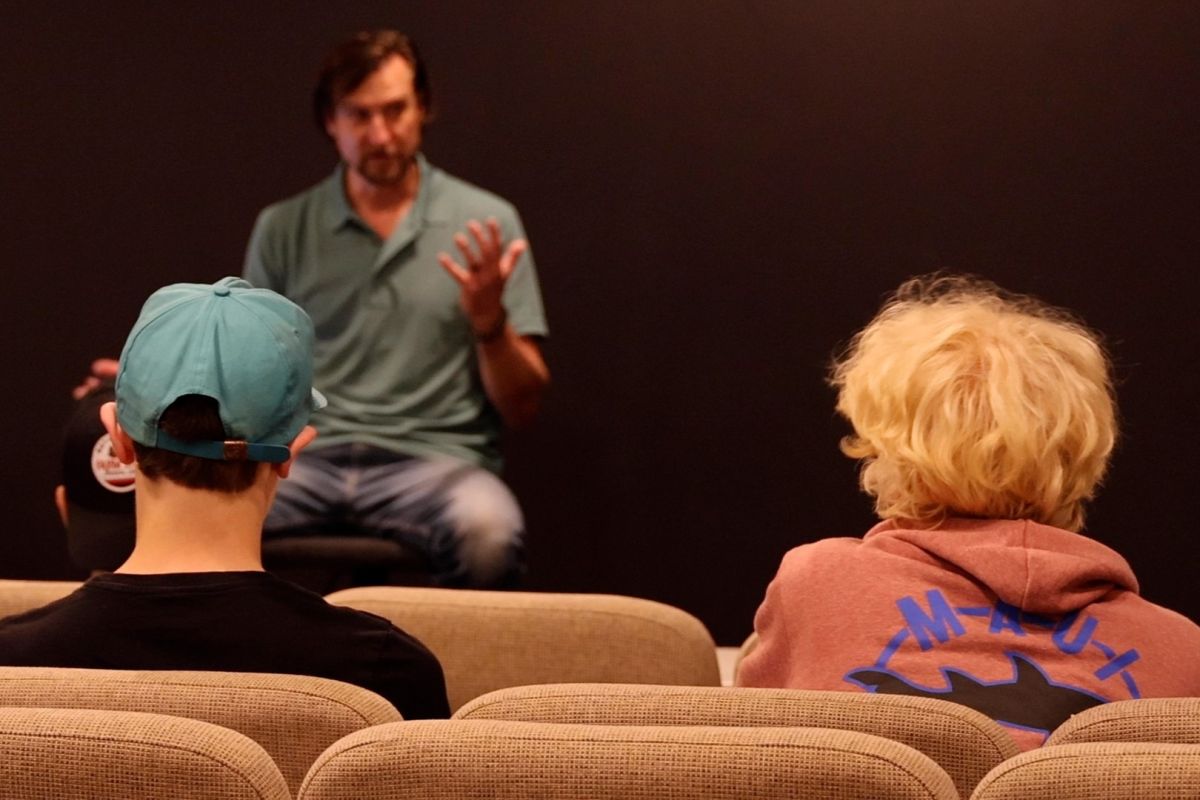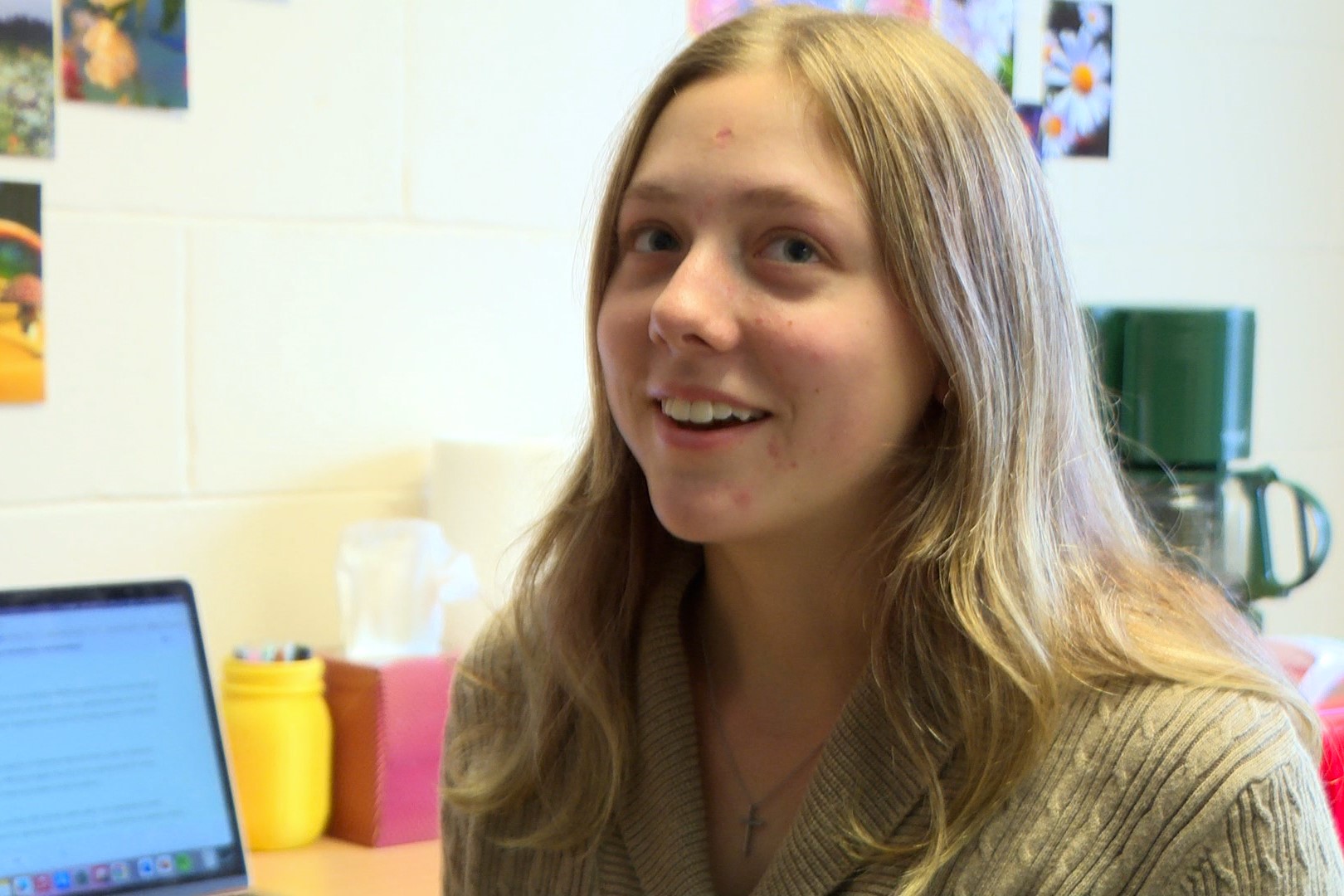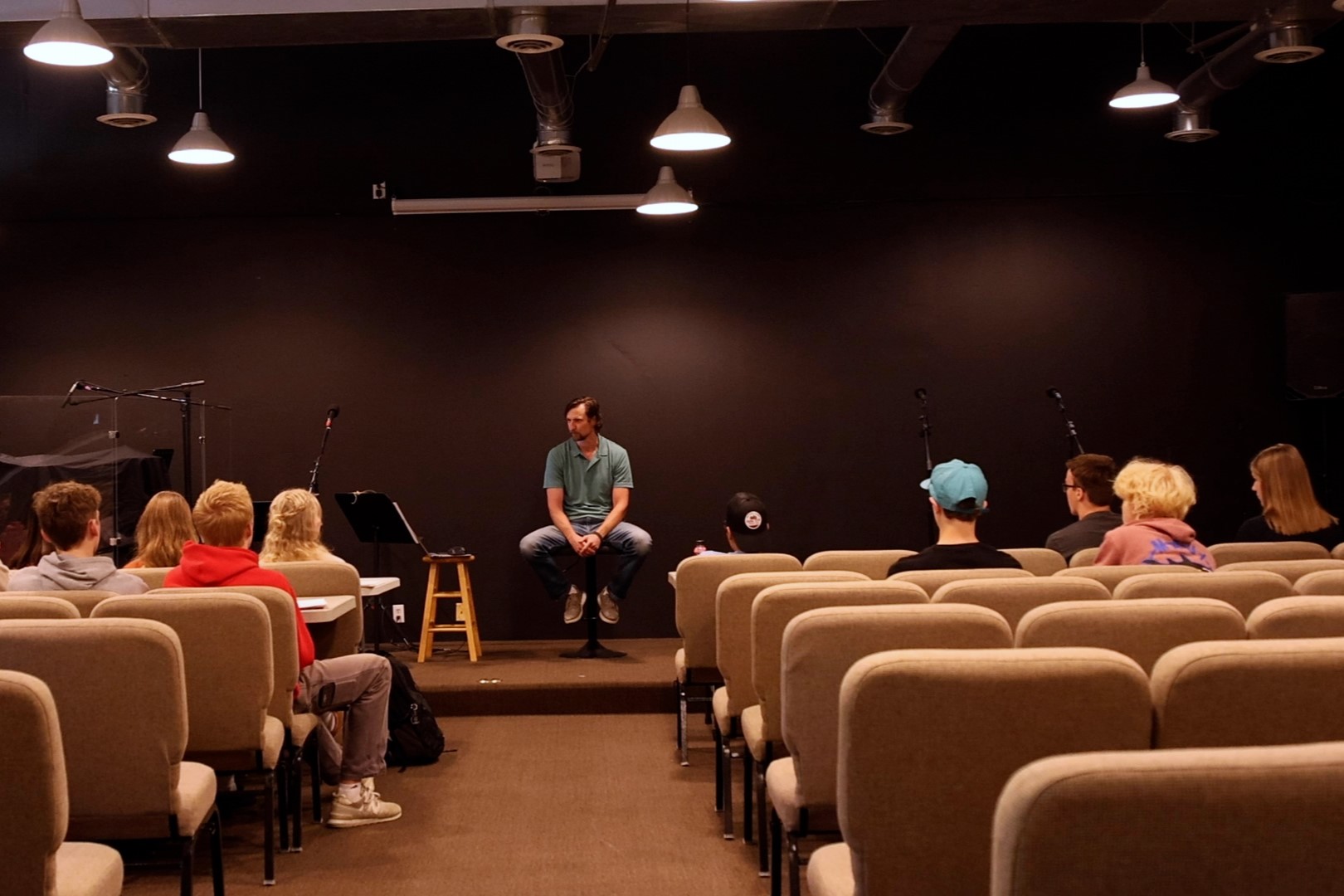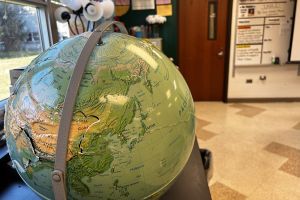
A group of high schoolers meet in a local church for a finance class. The homeschooled students take part in a co-op, where parents and other adults share teaching responsibilities. (Aubrey Wright, WTIU)
During her senior year of high school, Elise Jedlicka took a class at Ivy Tech Community College.
Her professor gave her a list of ways college is different; students needed to take charge of their own learning. And she thought, “I get it already.”
Jedlicka was homeschooled from kindergarten to senior year, led by her mother.
“That whole list that was something that kind of, I don't know, gave me some perspective into what it would have been like in a public high school,” Jedlicka said.
Now, Jedlicka is a sophomore at Indiana University majoring in tourism, hospitality and event management. She said homeschooling helped her focus on learning and motivated her to enjoy the material.
“I loved it, and I’ll hopefully homeschool my kids,” Jedlicka said.

Homeschooling looks different for every family.
Annie Luidhardt, a mother of six, teaches a class for homeschooled kids at a local church. As a member of a co-op, Luidhardt and other parents swap teaching throughout the year. A retired IU professor has helped out, too.
So far, three of Luidhardt’s homeschooled children have gone to college.
“I think that kind of lends itself to a college atmosphere,” Luidhardt said. “Obviously, you have a professor teaching, but a lot of it is, you have to read the material, you have to do the work on your own at home, and there's a lot of self-management that has to go on there.”
Between traditional textbook learning at home, online classes and tutoring these high schoolers have studied science, history, math and finance through their co-op. Luidhardt said most of the time, these students end up taking classes at Ivy Tech by their junior year.
“We've had SAT prep courses that we've offered in the past,” Luidhardt said. “We really try to use our community resources as well.”
It’s hard to know for sure how many students are homeschooled. According to surveys from the Department of Education, about 5.2 percent of K- through- twelve students are homeschooled. And that figure is up compared to the 2018-2019 school year.
During the Covid-19 pandemic, kids were sent home to learn, said Robert Kunzman, an IU professor and managing director of the International Center for Home Education Research. He assumes some families continued education at home.
National surveys are a great resource, but experts say they don’t present a complete picture.
“Indiana is a great example of a state that does not collect information about homeschoolers,” Kunzman said. “We only know in an anecdotal sense, perhaps, that homeschooling has increased.”
Read more: How IU students are preparing to vote in contentious 2024 general election
Families and students have a lot of freedom to homeschool in Indiana.
Indiana doesn’t require homeschoolers to register with the state or report data. Instructors should take attendance, and students should have 180 days of instruction. Classes should be equivalent to public school, but parents or other instructors have control over the content and graduation standards.
Amy Sager, director of communications for the Indiana Association of Home Educators, said homeschoolers appreciate that freedom.
“They find that beneficial when they get into college,” Sager said. “Because in college, students make a lot of their own choices about classes they're going to take and how they're going to spend their time. Homeschooling allows children to explore that freedom more before they get to college.”
Kunzman said homeschoolers do about as well in college as kids from traditional schools.
There aren’t any dramatic differences. Kunzman said there are more pivotal factors that impact how well homeschoolers do in college, such as their family’s demographics, income level and educational attainment.
Kunzman said some limited data shows homeschoolers struggle more with math or long research papers. But they may also handle reading and self-directed learning better.
As with traditional schools, Kunzman said some homeschooling situations are impressive and students will excel. Others might be unimpressive and neglectful.

"I think it's not all that dissimilar from what we'd find in conventional schooling,” Kunzman said. “But we certainly can't say with any confidence that homeschoolers perform better or worse.”
Sager and Luidhardt believe homeschoolers tend to manage their time better than traditional students. And with the rise of dual-enrollment in homeschool settings, students gain college experience while in high school. That’s what Jedlicka benefitted from, starting college with credits already under her belt.
Though she said homeschooling is growing, Sager can't predict if colleges will see more homeschoolers in the future.
“I think there are so many different paths that students take these days that there are many options in front of them,” Sager said. “But I think homeschoolers are well prepared for college should they choose to go.”
And if they choose to go, college admissions offices tend to welcome them.
Naturally, students’ records might be unconventional. Schools such as IU Bloomington evaluate their curriculum, transcripts, application essays, and — if applicable — their test scores.
Kunzman said today, there are even more homeschooling resources and networks to help students through school.
Groups like the Indiana Association of Home Educators guide parents and students through the application process. It helps parents adopt transcripts and track credit hours.
“You are absolutely free to create something different, but you might want to look at what the college your child is interested in requires,” Sager said.
Jedlicka chose to take the SAT, for scholarships and to give an “official” number to the school. She said being homeschooled set her apart in applications, and she could talk about the experience positively.
“Applying, it was pretty easy,” Jedlicka said. “I had three older brothers that all went through it before, too.”
Jedlicka said homeschooling won’t be for everybody, but it was great for her. Going forward, it’s different. But she said there are more opportunities in college.
“I know that I'll learn more too,” Jedlicka said. “There's stuff that I don't know that I don't know. So, I'm excited to figure that out still.”
Aubrey is our higher education reporter and a Report For America corps member. Contact her at aubmwrig@iu.edu or follow her on X @aubreymwright.











